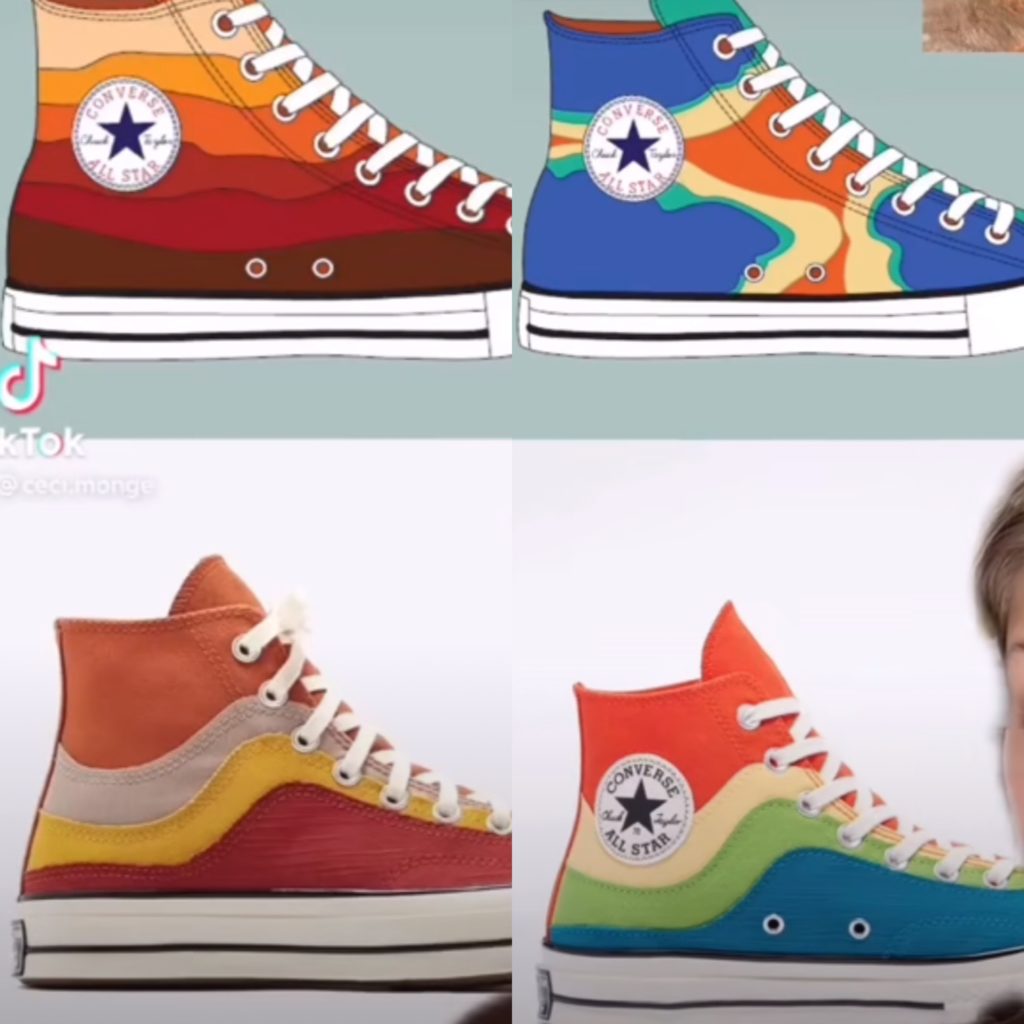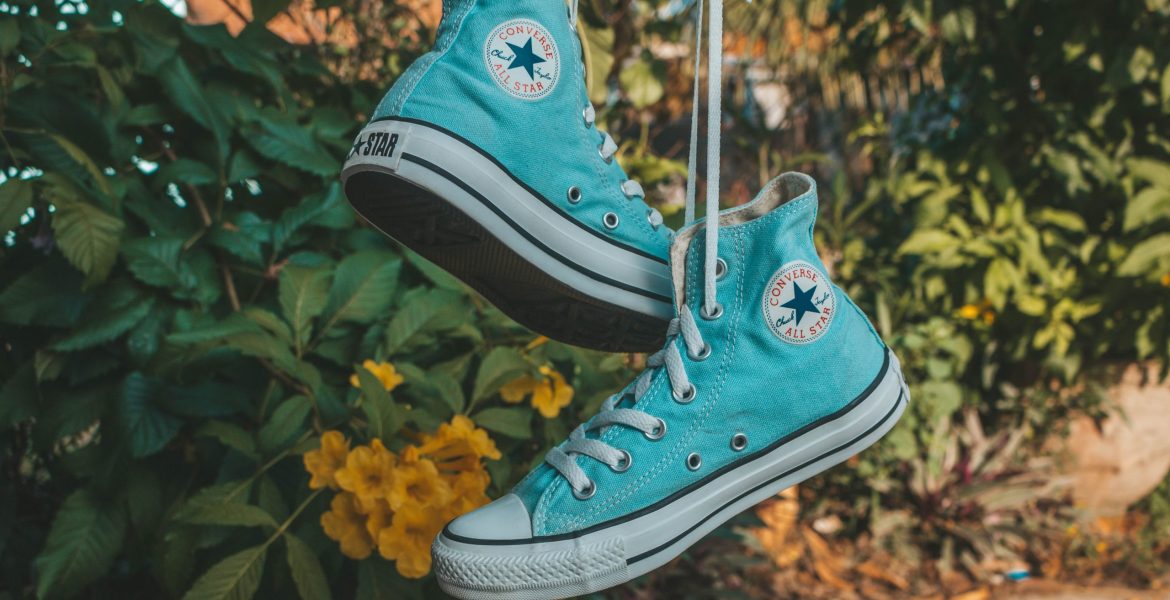Given the fashion industry’s lengthy list of needed improvements, a hard look for the first time can feel like realizing that one problematic BFF you love so much is actually a little toxic. From learning the difference between representation and inclusivity to addressing all the ethical problems with fast fashion, the fashion industry falls short in many areas.
The 1.9 trillion dollar industry has undergone closer inspection than ever before due to the rise in accountability led by many social media rooted movements such as #metoo. With so much work to be done, the stars have aligned for another weak area in the industry to come to light.
Artists are influenced by other artists, and naturally, some things will begin to look similar over time. It is impossible to fully prevent a student from looking at notes during a test no matter how hard a teacher tries. The fashion industry has a long history of widely accepting adaptations of designs that mimic another artist’s work. All the way from the runway to the knockoff-filled Canal Street in NYC, the old adage, “imitation is the highest form of flattery” seems to be the industry motto.
What is not okay is turning a blind eye when a student gets up, steals the test off of another student’s desk, and goes to turn it in like it is their own. That is exactly what many of the largest fashion companies have done to independent designers, employees, and applicants — the most recent being All-American shoe brand Converse.
Cecilia Monge, a recent grad from Florida State University excitedly applied to Converse’s internship in 2019. In hopes of improving her chances of securing the position, she went above and beyond. The designer submitted a pitch deck of a groovy line of sneakers inspired by the Grand Canyon, Yellowstone, and Yosemite parks.
Fast forward to May 2021, Cecilia came across a Tiktok praising the shoe company’s new “National Parks” collection. She made her own video in response, explaining her situation and showing comparisons to her application. Celia also reached out to Converse directly by email after seeing the video but never received a reply.

It was not until Cecilia’s Tiktok garnered over 20 million views to date and national media attention in June that she was able to get a Converse to acknowledge the situation. Converse told Boston.com, “We do not share unsolicited portfolios of job applicants across the business. This concept and design was completed before we received an application from the candidate.”
The alleged unempathetic attitude and cutthroat mentality displayed by Converse is a hard pill to swallow, especially for college students and recent grads eager to get their foot in the door in fashion. Cecilia could have been any one of us. We all have that internship or job we daydream about landing. Imagine dying to work for a company, being denied the position, and then years later finding out your work was used with no mention of your name.
Cecilia spoke with College Fashionista over email to reveal exactly what happened with Converse and what she hopes will change in the industry to prevent her situation from ever occurring again.
Taya Coates: As a recent grad just beginning your career, how has your experience with Converse affected your view on the fashion industry as a whole?
Cecilia Monge: My experience with Converse has definitely been eye-opening. While I knew that this is something common that’s been happening in the industry, it was still really shocking when I saw how much traction my video had been getting and Converse’s ability to continue to ignore it.
If this is what is happening to internship applicants and independent artists, it is only right to wonder what could be happening to employees. How many similar stories still have not been told? Shining light on Cecilia’s experience is the first step, but with no action, her story will only be repeated in the future. The current culture in fashion allows companies to have no fear of repercussions from stealing art.
The presiding American legal protection, the Copyright Law, covers forms of art such as music, paintings, and books. When it comes to functional art such as fashion, it all goes to grey. According to The Fashion Law, “creative elements of a design that can be separated from the functional elements are subject to protection. This is why elements of a garment, such as a print that covers it, may be protected..but the design of the dress, itself, is not.” The division of the elements of apparel is usually what makes it hard for artists to protect their work and in turn, only fighting a losing battle with companies who have much more legal funding.
TC: What would you like to see happen within the industry to prevent work from being stolen in the future?
CM: I think the accountability should be placed on companies. It is their responsibility to prioritize and value their designers. One way to prevent work from being stolen is promoting transparency within organizations so it would be harder for someone within the company to claim something as theirs.
Legal action is a great route to take, but the only solution that will cause immediate results is boycotting the companies that are stealing from these bright minds. Millennials and Gen-Z have successfully convinced businesses to create change by using social media as a tool to unite the masses.
TC: Do you foresee our generation (Gen Z) being able to effectively rally and/or boycott against brands in order to create change?
CM: Absolutely. All the recent change has been catalyzed by Gen Z folks. While the legwork has certainly been done by generations before us, it’s the relentlessness of Gen Z-ers that’s really sparked a change, a perfect example is Emma Gonzalez and the fight against gun violence. It’s the ability to be unwavering in our beliefs that makes Gen Z a force to be reckoned with.
A great example is the 15 Percent Pledge, a simple initiative determined to make the effect of the Black Lives Matter movement last. The group reached out to companies such as Sephora on social media through powerful infographics, asking for a commitment to giving “15% of their total purchasing power to supporting Black-owned businesses.” After successfully landing Sephora, 26 companies including Vogue, Athleta, and KITH followed suit.
The common denominator and saving grace in both Cecilia’s and the 15 Percent Pledge’s situation was social media. It was the Tiktok that informed Cecilia of what Converse supposedly chose to do with her internship application. Gen-Z is unique in our ability to unite almost instantly. Movements that would have taken decades now take days because of social media messages sent at the speed of light. That ability to work together is something powerful, and can completely change the face of the fashion industry.
According to a July 2020 survey by CompareCards, 38% of consumers were currently boycotting a company, with Gen-Z as the generation most likely to boycott. Unlike topics with a wider array of opinions, the simple moral cause of not stealing is something everyone can get behind. Combining the powerful punch behind a social media army with controlled spending has the potential to turn the fashion industry on its head.
Not tolerating the behavior of companies such as Converse with our dollar is the way to be heard loud and clear. If we continue to support companies who do not respect independent artists and even internship applicants, the industry will transform into something we will not be able to recognize, let alone want to work for.
PR can die out over time. Sales numbers do not. Once this momentum is built and companies are finally held accountable, the whole industry will take notes. This same boycotting approach can be used to reinvent the fashion industry into one that is more accepting, encouraging, and compassionate.
Featured photo by Thuan Pham on Unsplash

